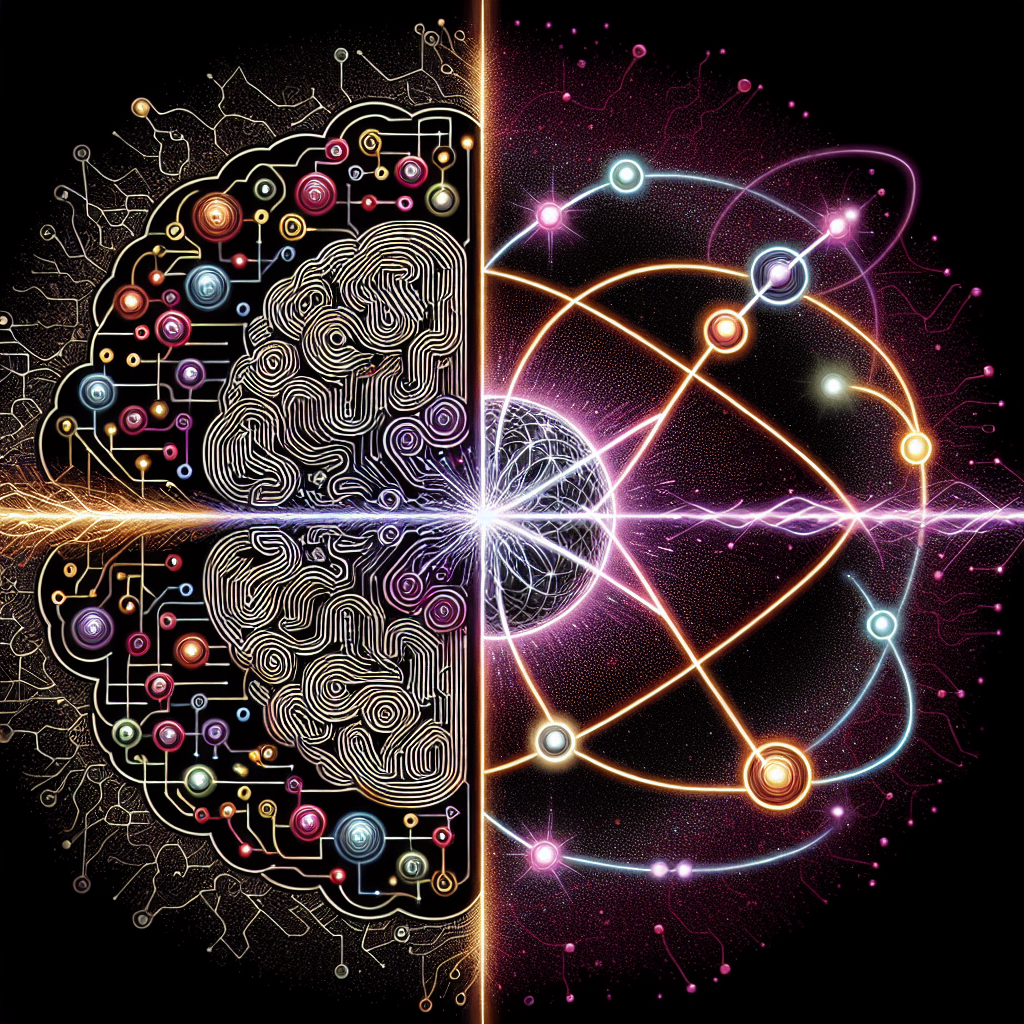In recent years, the fields of artificial intelligence (AI) and quantum computing have been rapidly advancing, each making significant strides in their own right. However, what is perhaps even more exciting is the potential that lies at the intersection of these two disciplines. The combination of AI and quantum computing has the power to revolutionize industries, solve complex problems, and push the boundaries of what is possible in technology.
AI is the ability of machines to mimic human cognitive functions such as learning, problem-solving, and decision-making. It has already had a profound impact on various industries, from healthcare to finance to transportation. Quantum computing, on the other hand, is a new and emerging field that harnesses the principles of quantum mechanics to perform calculations at speeds exponentially faster than classical computers.
When AI and quantum computing come together, the possibilities are endless. Quantum computing can enhance the capabilities of AI algorithms, enabling them to process vast amounts of data and perform complex calculations more efficiently. This can lead to breakthroughs in areas such as drug discovery, weather forecasting, and financial modeling.
One of the key areas where the intersection of AI and quantum computing is particularly promising is in the field of machine learning. Machine learning is a subset of AI that enables machines to learn from data and improve their performance over time without being explicitly programmed. Quantum computing can significantly enhance the capabilities of machine learning algorithms by enabling them to process and analyze large datasets at speeds that are currently unimaginable.
Another area where the combination of AI and quantum computing shows great potential is in the field of optimization. Many real-world problems, such as logistics planning or supply chain management, involve finding the best solution from a large number of possible options. Quantum computing can be used to solve these optimization problems much faster than classical computers, leading to more efficient and effective solutions.
In addition to machine learning and optimization, the intersection of AI and quantum computing can also have a significant impact on cybersecurity. Quantum computers have the potential to break many of the encryption methods currently used to secure data, posing a significant threat to cybersecurity. However, AI algorithms can be used to develop new encryption methods that are resistant to quantum attacks, ensuring the security of data in the quantum computing era.
Despite the immense potential of the intersection of AI and quantum computing, there are still many challenges that need to be overcome. One of the main challenges is the development of quantum algorithms that can effectively leverage the power of quantum computing for AI applications. Researchers are actively working on developing these algorithms, but there is still much work to be done.
Another challenge is the scalability of quantum computing. Current quantum computers are still in their early stages of development and are limited in terms of the number of qubits (the basic unit of quantum information) they can support. In order to fully realize the potential of quantum computing for AI applications, researchers need to overcome the scalability challenges and build larger, more powerful quantum computers.
Despite these challenges, the intersection of AI and quantum computing holds great promise for the future of technology. As researchers continue to make advances in both fields, we can expect to see groundbreaking innovations that will reshape industries, solve complex problems, and push the boundaries of what is possible in technology.
FAQs:
Q: What are some current applications of AI and quantum computing?
A: Some current applications of AI include virtual assistants, image recognition, and natural language processing. Quantum computing is being used for tasks such as optimization, cryptography, and material science.
Q: How can AI enhance quantum computing?
A: AI algorithms can be used to optimize quantum algorithms, improve error correction, and enhance the performance of quantum computers.
Q: What are some challenges in the intersection of AI and quantum computing?
A: Some challenges include developing quantum algorithms for AI applications, scaling up quantum computing systems, and addressing security concerns related to quantum computing.
Q: What are some potential future applications of AI and quantum computing?
A: Potential future applications include drug discovery, weather forecasting, financial modeling, and cybersecurity.
In conclusion, the intersection of AI and quantum computing holds immense promise for the future of technology. By combining the capabilities of AI and quantum computing, researchers can push the boundaries of what is possible and pave the way for groundbreaking innovations that will revolutionize industries and solve complex problems. As researchers continue to make advances in both fields, we can expect to see a new era of technology that will change the way we live, work, and interact with the world around us.

